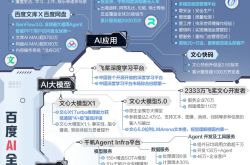"The AI Values of the Man Behind Trump"
![]() 11/07 2024
11/07 2024
![]() 759
759
This article is written based on publicly available information and is intended for information exchange only, not constituting any investment advice

Elon Musk is the man in front of Trump, while Peter Thiel is the man behind Trump.
Peter Thiel is not only an early business rival and partner of Musk, but also a mentor to JD Vance, Trump's running mate and vice presidential candidate, as well as a guide to the rising star in military technology, Palmer Luckey. These individuals, who can be considered Trump's right-hand men for the next four years, are all deeply influenced by Peter Thiel. Take JD Vance as an example; many of his distinctive views during his campaign support for Trump originate from Peter Thiel's ideas.
As the godfather of entrepreneurship in Silicon Valley, Peter Thiel is a rare super-entrepreneur and business strategist who has maintained his fame in the Internet era while being one of the first to transition smoothly into the AI era. From PayPal in the Internet era, to Facebook in the mobile Internet era, to Palantir and OpenAI in the current AI era, the technology start-up projects led or participated in by Peter Thiel are all iconic companies of their respective times. Currently, Palantir is also one of the few pure-blood AI companies with a market value of hundreds of billions of dollars that is continuously generating cash flow.
Peter Thiel is also controversial, with most of these controversies stemming from complex political and social relationships. It is precisely this complexity that makes it difficult to quantify his impact on the current American and even global technology industries. To a certain extent, in the current American technology and politics landscape, only Peter Thiel can be compared to Musk.
There is a secret in Silicon Valley that reveals this point: Do not compete against Musk and do not disregard Peter Thiel's viewpoints.
As Peter Thiel's disciples and comrades-in-arms officially ascend to the stage of power on November 5th, Peter Thiel's viewpoints become even more worthy of observation and research. A few months ago, in a three and a half-hour podcast interview with Joe Rogan, who was also a significant media contributor to Trump's campaign, Peter Thiel shared his views on AI, which are worth seeing and taking seriously.
The following content is an excerpt of the corresponding viewpoints:
1. AI will restructure our economic culture and politics in a dramatic way, but we don't even know how to deal with it yet.
In 2014, Oxford University professor Nick Bostrom wrote the book "Superintelligence," arguing that artificial intelligence will surpass all humans like gods.
In 2018, Kai-Fu Lee represented the Chinese Communist Party (CCP) and wrote "AI Superpower," defining artificial intelligence as a facial recognition technology that does not require much innovation, with the subtext being that China will win.
In 2023, what we got was neither superintelligence nor recognition technology, but the true holy grail of artificial intelligence: From 1950 to 2010, artificial intelligence was defined as passing the Turing Test, but in 2021, ChatGPT failed the Turing Test, while in 2022, it passed the Turing Test for the first time, reaching an IQ level of 100.
Now, everyone is discussing whether Artificially General Intelligence (AGI), a super-intelligent AI with unlimited intelligence, will arrive. I believe that the issue of super-intelligent AI is more important to an omnipotent God, as Mr. God will thus encounter competition.
However, ChatGPT passing the Turing Test for the first time to match human intelligence is a more significant signal for humanity, as today's AI is either a supplement to or a competitor of humans, and it will restructure our economic culture and politics in a dramatic way. Today, we can be certain that GPT-5 will be better, and GPT-6 will be even crazier.
I often compare today's AI to the Internet bubble of 1999. In 1999, to some extent, it was evident that the Internet would become very large, but at the same time, it was still a complete bubble, and people didn't know what Internet business models would work. Almost all Internet models at that time failed.
It took 15 to 20 years for it to become a super phenomenon, but it didn't happen within 18 months in 1999 as people imagined.
The world has not made much scientific or technological progress in the past 15 years or so, or at least not as much as Silicon Valley likes to claim. Therefore, passing the Turing Test in artificial intelligence is a huge technological achievement, but it remains an unresolved question:
Will AI really bring a higher standard of living for everyone?
For example, the Internet is a huge achievement, but to what extent has it improved people's living standards? This is actually a very difficult question to answer.
Not much has happened in the world today, leading to a paradox where relative technological stagnation makes us unsure how to handle truly significant events when they occur.
Therefore, I believe that Bitcoin is a great invention. We can argue whether it is good or bad, but it is a significant event. At least in the first 10 years after its invention, it was systematically underestimated.
Bitcoin could be traded in 2011, but it remained stagnant for 10 to 11 years without significant repricing. I believe this is because we live in a world where nothing significant has ever happened, so when Bitcoin emerged, we were mentally unprepared to handle it.
The Internet is also a significant event, and passing the Turing Test is truly a significant event. It is as significant as the Internet. Our life experiences rarely make us feel change, so in the past few decades, we may have underestimated these truly significant events.
Interestingly, today we rarely say that the world feels like it hasn't changed much.
I was born in 1967, so for people of our age, the world has actually not changed much for a long time.
In 1967, when you and I were born, what did the term "technology" mean when people discussed it at that time?
It not only meant computers but also rockets, supersonic airplanes, innovative drugs, the green revolution in agriculture, underwater cities, because technology was simply defined as changing things that were progressing, so there was progress in all these areas.
However, in the past 20 years, when you talk about technology, you usually only talk about information technology, and technology has been reduced to the narrow scope of computers. This tells you that the structure of technological progress today is strange.
Bits have made tremendous progress worldwide, and the computer world has also made tremendous progress, while all other fields have relatively stagnated.
In the physical world, our physical speed is slowing down. The Concorde supersonic airliner was retired in 2003, and due to low-tech airport security checks, flights take longer. You can't even quickly pass through all security checks to travel from one city to another today.
Highways have regressed due to increased traffic congestion, and we haven't found a solution yet, so we move slower than we did 40 or 50 years ago.
These intelligent screens and devices in front of us have a distracting effect:
They can distract our attention. So when you ride the century-old New York subway and stare at your iPhone, you'll find it's a really cool new gadget, but you won't be distracted by the fact that the New York subway is a hundred years old and worn out.
As humans, our bodies are embodied in the material world, so I always say that the atomic world is very important.
In the late 1980s, when I was an undergraduate at Stanford University, entering any engineering field was already a bad thing at that time:
Whether it's mechanical engineering, chemical engineering, or any of these engineering majors, practitioners couldn't attempt innovation because these things were eventually stagnated and heavily regulated, making innovation impossible.
As for nuclear engineering and aerospace engineering, people even knew at that time that these were very bad fields, and almost all directions in these disciplines were illegal. You wouldn't do anything related to new nuclear reactor design or similar things.
Electronic engineering, which is related to the manufacture of semiconductors, is relatively okay. The only field that will truly make great progress is computer science.
Today's computer industry is very powerful, but this was not how we felt in the 1980s. Computer science in the 1980s was such an absurdly inferior discipline. It was for people who couldn't handle math and couldn't study math or electronics.
2. Humans are giant imitation machines, which is the essential meaning of AI passing the Turing Test, implying the logic of the rise and fall of civilizations.
The fall of the Roman Empire was a catastrophic event. Diseases ravaged the land, and there were political problems, leading to a great setback for humanity. In AD 400, humanity entered the Dark Ages.
Naive progressivist views always believe that things are always getting better and better, which is a revisionist and purely progressive history. Even many progressivist views would argue the foolish notion that the Roman Empire never declined.
Quantifying the rise and fall of civilizations requires purely demographic data. The core issue in measuring the rise and fall of civilizations is: How many people live in that civilization?
The simplest argument is that the Roman Empire had a larger population because Rome was more advanced, and such a civilization could support a larger population.
Rome may have had a peak population of one million, but by AD 650, the population of Rome had dwindled to 10,000 or fewer, marking a complete collapse. So the Roman civilization was not everlasting.
Another purely progressivist view is that historically, the population has always been monotonically increasing, as it measures how things have grown on average.
Therefore, I absolutely agree with you that populations rise and fall, and civilizations experience rise and fall, not perpetual growth.
Our civilization may decline. If civilizations were only monotonically progressing, there would be nothing to worry about, and nothing could go wrong, but that is obviously not the case.
I agree with Hancock's view that our civilization today is more advanced in some ways than any past civilization. I don't think any of the past civilizations had nuclear weapons, and I don't think any of them had spaceships or similar things, so the patterns of civilizational decline will also be different.
In my judgment, in Darwin's theory of evolution, we emphasize continuity. I believe in Darwin's theory, but to some extent, I think Darwin's theory is too dogmatic, causing us to overlook discontinuity.
There is a type of discontinuity that can occur overnight. A rather dramatic discontinuity is that humans have language. Chimpanzees are beautiful and intelligent. I don't know if their IQ is up to 80, but when chimpanzees don't have a rich symbolic system, it leads to a very different structure, as well as language and coordination.
Language allows and forces you to coordinate violence, then it encourages you to direct that violence towards some sacred religious direction.
I believe that through language, we have created a completely different human society. Humans are significantly different. Humans tell stories to each other, and many of these stories are not true but myths. I believe this is a very important distinction from our closest primate relatives.
This explains from another angle why ChatGPT and passing the Turing Test are so crazy.
Because if we were sitting here two years ago, and you asked me what makes a person human and different from other primates to some extent, my first answer would be language.
Almost all humans, whether they are three years old or eighty years old, can speak a language, while almost all non-humans cannot. This is a yes-or-no question that tells us again why passing the Turing Test is more important than super-intelligent AI or anything else.
Aristotle always distinguishes things by categorizing them. I believe Aristotle's statement is that the difference between humans and other animals is that humans have a greater ability to imitate. Humans are giant imitation machines. We are better at imitation than apes.
I would say that our brains are giant imitation machines. This is how you learn language when you are young; you imitate your parents.
This is how culture spreads.
However, imitation has many aspects, and some of them are also very dangerous because this is not just imitation happening at the symbolic language level. You imitate what you want. You want a red ball, and I want a red ball too. Ultimately, this imitation can lead to severe violent conflicts between people and tribes.
3. The current progress in AI technology is still insignificant, and the concept of a technological singularity more often stems from ulterior motives; AI will inevitably be regulated, but this could be a huge mistake.
One of them is the technological singularity brought about by AI that you just mentioned, such as when human technology makes great progress and humans achieve a very high level of productivity. In my opinion, this scenario is purely a Silicon Valley interest, promoting the idea that they are delivering great progress in human technology.
Let's assume there's a 1% chance that these Silicon Valley companies are making significant technological progress and that these companies are very restrained and moral, but ultimately fail to achieve a technological singularity due to insurmountable technical challenges;
But there's a 99% chance that these Silicon Valley companies are only using technology as a facade to politically promote the idea that human technology is progressing rapidly and that a singularity is imminent, but in reality, the technology is completely ineffective or a failure, or it's purely money laundering.
But if many people point this out, these companies will find ways to rephrase this political propaganda to counter the idea that there is no technological progress in Silicon Valley, and that technology is stagnating and regressing. They will promote so-called global governance.
One example is the RAND Corporation in Southern California, which is one of their vertical fields, public-private integration. But one of the things they are promoting is called "global computing governance": Since the story of AI acceleration is too scary, too dangerous, and likely to cause big problems, we need a global collaborative organization to manage AI.
This propaganda is also working, so it may ultimately hinder the development of AI. My understanding of popular culture is that this dystopian narrative about AI is more compelling now. I don't like extreme altruistic assumptions or Luddites, but this time I feel like they are winning the debate.
Would you rather worry about the scenario in "Dr. Strangelove" (a nuclear war between the US and the Soviet Union) or worry that Greta will force everyone to ride bicycles so that the world won't be destroyed by nuclear weapons (anti-technological progress environmentalism)? We live in a society where everyone is worried about Dr. Strangelove's nuclear weapons destroying the world but not worried about Greta's omnipresent regulation destroying the world.
I believe that AI will be regulated, just as we have banned many other innovative carriers. You can think about why only computers have made technological progress in the past 50 years. Computers are a virtual reality isolated from the real world air, which is vastly different from the real world. So many crazy things happen on the Internet, but most of them stay on the Internet. Therefore, there is relatively little regulation of the Internet.
If the Food and Drug Administration (FDA) regulated games and videos, technological progress on the Internet would be much slower.
You should know that innovative pharmaceutical companies are just like Silicon Valley technology companies. They haven't done much technological innovation, and there are no new drugs coming out, but they have also successfully scared people half to death. Today, people are not worried about the harm of video games to humans but about out-of-control drug research that could kill the world.
If AI eventually transcends being merely an internet game and starts interacting with the physical world, it will eventually fall under FDA regulation. These government agencies are not good at getting things done, but they are adept at blocking technological progress and slowing down progress.
Over the past 40-50 years, we haven't achieved anything in extending human lifespan or treating Alzheimer's disease. All areas are tightly regulated, which is terrible from a progress perspective but highly effective from a regulatory perspective. They are efficient Luddites.
In my opinion, Silicon Valley proponents of AI have done a poor job of public relations. They haven't convinced the public that AI benefits ordinary people and society. If the mainstream narrative today is that under the influence of AI, humans are like dying animals heading to the slaughterhouse, it would make me want to become an anti-AI Luddite myself.
I believe that AI will prevent humanity's destruction.
4. One more thing: Reflections on the California model and the path of "American debt relief".
I often talk about moving away from California, but talk is often more prevalent than action.
Talking is often a substitute for action. I moved from San Francisco to Los Angeles in 2018, which was a massive move.
I'm unsure whether I should move from California to another state or leave the US entirely because I don't want to move twice, first to another state and then emigrate from there.
I'm uncertain whether to move to Florida or directly to places like New Zealand or Costa Rica.
People will say that the US performs relatively well compared to other countries, but absolutely speaking, the country is stagnant.
Whenever I discuss moving to other countries with others, they always say, "Other countries are worse.""Because every country in the world is getting worse, which somehow distracts us from all the problems in the US. Since other countries are worse, we stop complaining about problems in the US.
For example, we have a crazy fiscal deficit problem.
Theoretically, we need to do one of three things: significantly increase taxes, significantly reduce expenditures, or significantly borrow money.
Today, our deficit accounts for 3% of GDP and 15% of federal expenditures, the highest in history. Due to the US interest rate being 0% from 2008 to 2020, if you borrow money to cover the deficit, the interest won't appear in fiscal expenditures with a 0% interest rate.
Now that the interest rate is +4%, under a huge debt, this fiscal problem is starting to spiral out of control.
People have been discussing the US deficit problem for 40 years, shouting "The wolf is coming" for 40 years, which has made people less willing to take the issue seriously.
I'm a classical liberal who believes that problems can only be solved through market means, such as raising the retirement age or implementing means-tested social security (where eligibility is determined based on economic circumstances to prevent wealthy individuals from receiving benefits). These methods are unpopular.
Our social security gives people the impression that it's a pension insurance system, but in reality, it's just a tax benefit system. People assume that paying into social security entitles one to a pension, making it an intergenerational insurance system. However, if we were more honest, we would admit that social security is merely a welfare system unrelated to how much one contributes.
The current social security contribution cap is $150,000 in annual income. The left-wing argument is to abolish this cap because it means that someone earning $1 million annually pays no social security tax on income above $150,000, effectively creating a regressive tax where wealthy individuals enjoy social security benefits without fully contributing.
The issue is that if social security were truly a savings system, then those who contribute less would pay less and there would be no need to abolish the cap. If it's a tax benefit program, it's indeed unreasonable for high-income individuals to pay a lower tax rate.
This proposal itself proves that social security is not a savings system but a welfare system that can be adjusted downward.
California recently increased the marginal tax rate to 49%. Despite its chaotic management, this state keeps increasing taxes. This might be the first time in history that so many people are leaving California, yet the state remains unscathed:
California increased taxes by 10%, but only 5% of people left. Economically speaking, California is a very rigid place.
From a conservative liberal perspective, California should have collapsed long ago. However, with 40 million people and a GDP of $4 trillion, equivalent to the GDPs of Germany and Japan (considering Japan has triple California's population, yet its per capita GDP is only one-third of California's),
the California model continues to function.
The primary reason the chaotic California management model persists is that, like Saudi Arabia's oil economy, California has large technology companies that essentially foot most of the bills, allowing the government to become extremely inefficient and bloated.
The real estate industries in California and Saudi Arabia have become extremely developed because real estate is a way to redistribute oil or internet capital.
People have been saying that Saudi Arabia's management is absurd and unsustainable for 50 years, but if you have a huge oil field, you can pay for many absurd things for a long time. The same applies to California.
Out of the nine companies with a market capitalization exceeding $1 trillion globally, four are in California: Google, Apple, NVIDIA, and Meta. Qualcomm is also close to reaching a $1 trillion market cap.
When discussing leaving California, it's important to realize that you're not just choosing which state to live in but essentially which city.
I prefer to live in a medium-sized city. Among states with no income tax, four have no cities: Alaska, Wyoming, South Dakota, and New Hampshire.
Seattle has the worst weather in the country, while Las Vegas is known for its gambling and chaos. Houston, Texas, is an oil city, Dallas is a financial hub for the less wealthy, and Austin is a hippie alternative to San Francisco.
That leaves Nashville, Tennessee, and Miami, Florida. Miami is heavily tourist-oriented and not very conducive to a work environment. So I prefer Nashville.
I've lived in California since 1977 and am fascinated by its weather, which is comparable only to Hawaii. California's beach climate is unmatched. Austin is currently unbearable at 35°C. Moreover, California is free from tsunamis.
I believe too few people are leaving California. I always thought that if enough people left, it would put enough pressure on California to change. Many once believed that Michigan, with its strong automotive industry cluster and network effects, would be fine despite chaotic management. The three major automakers were all in Michigan, but as more people and companies left, Michigan eventually went bankrupt.
Similarly, people believe that California's tech companies have sufficient network effects, but I think this will eventually lead to California's bankruptcy as well.








